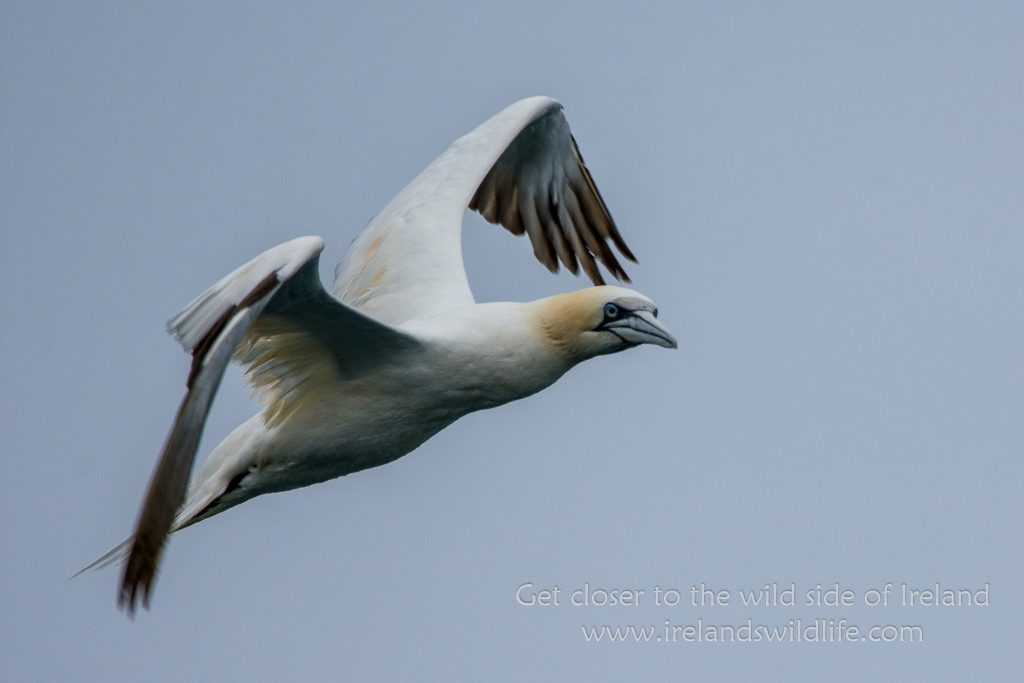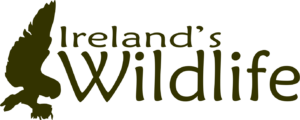Highly Pathogenic Avian Influenza (HPAI H5N1) has hit Irish seabird colonies this breeding season after running rampant through similar colonies in the UK earlier this year. The disease, which can infect a wide range of bird species, appears to have hit breeding Gannet colonies particularly hard.

Gannets, our larges seabird, nest in dense colonies on uninhabited offshore islands numbering tens of thousands of birds. Unfortunately these mass gatherings, with birds crammed in close proximity, provide an ideal environment for transmission of a virus like H5N1 . There are three main gannet breeding colonies in Ireland: a large colony on Great Saltee off the Wexford coast, a much smaller colony on the Bull Rock off the Beara Peninsula in West Cork and one of the world’s largest Gannet colonies on Little Skellig, off County Kerry, which hosts almost 30,000 pairs of this iconic seabird each summer.
Seabirds, wildfowl (geese, ducks and swans) and more
Dead and dying Gannets are being reported from around Irish coasts this year, along with some other seabirds like Guillemots and Razorbills in smaller numbers. But it is not just seabirds that are affected by H5N1 — any bird that comes into contact with other infected birds could catch and carry the disease. Wildfowl (ducks, geese and swans) and birds of prey are particularly susceptible, as are birds like corvids (the crow family) that could come into contact with the disease through scavenging infected carcasses.
To date there have been no reported cases in Ireland relating to garden birds, which are highly unlikely to come into direct contact with vectors of the disease. The risk posed by feeding your garden birds is considered minimal.
While H5N1 is predominantly an avian disease, and only spreads easily through bird populations, some mammals, including humans in very rare cases, may be susceptible to infection.
What should you do if you find a sick bird
Although the risk of the disease passing from a wild bird to a human host is extremely low, authorities recommend that the general public avoid all contact with sick or dead wild birds at this time.
- DO NOT TOUCH sick or dead wild bird
- DO NOT attempt to help sick wild birds, bring them home, or take them to an animal rescue centre
- DO NOT allow pets to approach sick or dead wild birds. Keep dogs on a lead in areas where dead or sick birds are present.
- DO report any dead or sick seabirds, wildfowl (ducks, geese or swans), corvids (crows) and birds of prey through the Official Department of Agriculture web portal here.
Alternatively, you can call the Department’s Avian Influenza hotline to report potential cases of the disease on 01 6072512 during office hours or 01 4928026 outside office hours.
Other Irish Avian Influenza Resources
Below you’ll find links to other Irish Avian Influenza resources on the web — we’ll keep this list updated as we discover relevant new links:
- Avian Influenza update from Birdwatch Ireland
- Avian Influenza Public Notice from the National Parks and Wildlife Service
- Avian Influenza Public Safety Information from the Department of Agriculture, Food and the Marine
- Avian Influenza general information on Gov.ie








